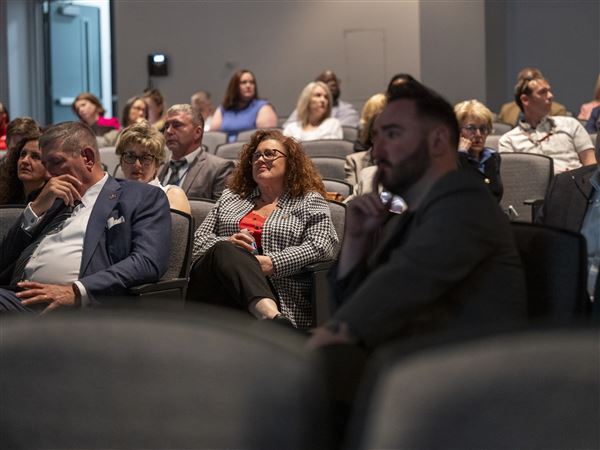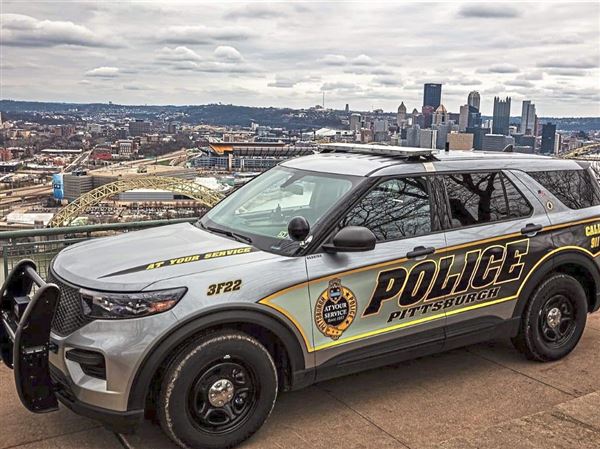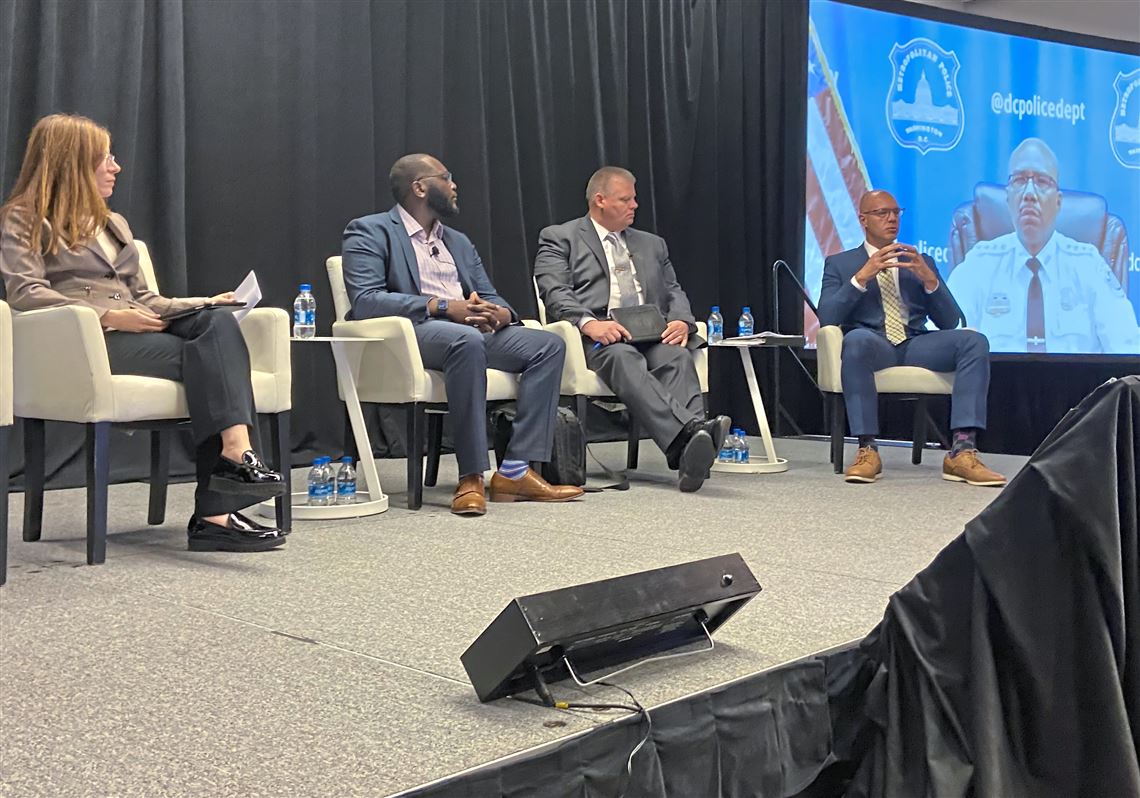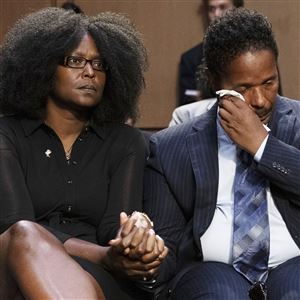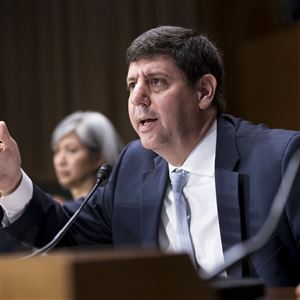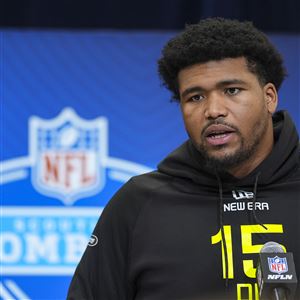Sammie Wicks, a former police officer, was exposed to extremist content before he even had a name for it. It was his first year as an officer when a colleague showed him propaganda from the far-right anti-government group called the Oath Keepers, which targets its recruitment efforts to members of law enforcement and the military.
“I thought what I was looking at was pretty normal. All they were talking about was protecting the Constitution, really bringing together a community of folks who had served their country in some capacity,” Mr. Wicks recalled. “When someone tries to get somebody to join a movement like this, oftentimes, the messaging that they're seeing, it's pretty benign.”
Mr. Wicks spoke to a mentor at the police department, who warned him that the Oath Keepers were not what they seemed. He now works as a senior program manager with the National Policing Institute’s Center for Mass Violence Response Studies, studying how to fight violent propaganda.
Mr. Wicks took part in a panel discussing extremism and police Monday for this year’s Eradicate Hate Global Summit at the David L. Lawrence Convention Center. The panel included former Pittsburgh Police Chief Scott Schubert (who recently left his position to join the FBI) and Washington, D.C., police Chief Robert Contee.
Chief Contee took over his position just four days before the Jan. 6 insurrection. According to the Anti-Defamation League, at least five of the people arrested for storming the Capitol building were active law enforcement officers.
Mr. Schubert recalled that day as a major turning point for law enforcement leadership.
“I truly believe we have a noble profession, and we do things that are right, and we live by the Constitution,” he said during the panel. “Seeing [the insurrection], it really opened a lot of eyes because there's been talk about extremism in law enforcement and military before, but I think this was a gut check.”
Panelists pointed out that, often, police departments were building best practices only after incidents occurred, or working with guidance and screening tools that were outdated. In order to be effective, police leadership needs to be aware of extremist groups’ latest messaging and propaganda tools, an effort that the Anti-Defamation League supports.
“That will be the only way that we are able to eradicate hate,” Chief Contee said. “All law enforcement agencies across the board, whether you’re a police department, sheriff's department, really doesn't matter — we should have something as a guiding tool that we can look toward.”
In the years following the George Floyd protests, police have also faced much more public scrutiny, sometimes leading to alienation, according to Mr. Wicks.
“Law enforcement was one of the most trusted government institutions in this country for a long period of time, and the data shows that that changed a lot in the past two years,” he said. “I knew officers whose sons and daughters came home to ask them if they're a racist, ask them how they can be police officers. This is not an excuse for an individual who joins one of these extremist movements, but it just shows there are things that can trigger and they can wear a person down.”
Building on an us-versus-them mentality erodes trust further within communities, and within departments.
“You, as the leader, need to set the tone on why [fighting extremism] is important for everybody and for the organization,” Mr. Schubert said. “You've got to have zero tolerance on it.”
Rebecca Spiess: rspiess@post-gazette.com or @RebeccaSpiessL
First Published: September 20, 2022, 12:30 a.m.
Updated: September 20, 2022, 10:08 a.m.

